Have you ever stepped on mechanical scales and seen one number only to see a different one when you try again a minute later? The thing is, mechanical scales react to the pressure exerted on the surface using mechanical mechanisms. Meanwhile, smart scales can measure weight with accuracy down to grams and even milligrams, consistently showing the same result (as long as you’re weighing yourself again after a short interval). So, do smart scales actually work? Yes, they do, and they are much more accurate and reliable than their mechanical counterparts.
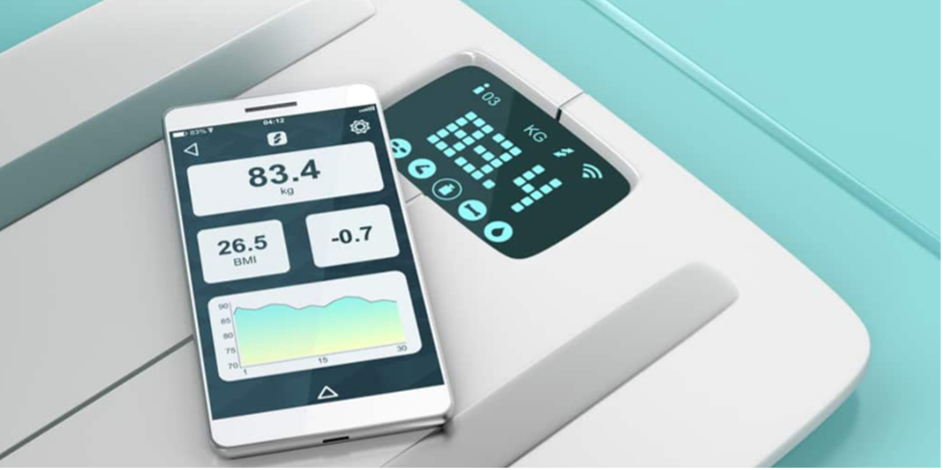
What Are Smart Scales?
Smart digital scales allow you to measure your body weight or other objects with high precision. Moreover, some models come with additional features that can analyze your body and provide information about muscle and bone mass composition, bone density, and even data on metabolic rate. Such functionality is available in premium digital scale models. Most devices, however, do not have these options, and their main advantages are the accuracy of measurement and the ability to sync with a smartphone and transfer data to a dedicated app. This allows you to store and analyze data, providing the user with real-time statistics. Data transmission from the device to your smartphone happens via Bluetooth or Wi-Fi.
How Does It Work?
The smart functions of digital scales became possible thanks to built-in Bioelectrical Impedance Analysis (BIA) technology. This is what enables the device to accurately measure body weight and other important health parameters.
Here’s how it works: You step on the scales, and the device sends a virtually imperceptible electrical current through your body. The current is very weak — so weak that it causes no discomfort — but it’s strong enough to allow the device to analyze data based on bioelectrical impedance and quickly provide results regarding your body’s key parameters. The current moves at different speeds through muscles, fat, and bones.
- It moves faster through muscles, as they contain a higher percentage of water.
- It moves more slowly through fat tissue due to its lower water content.
Bones have even greater density, requiring more time for the current to pass through. So, smart scales truly are “smart” — they provide highly accurate data about your current body state, monitor changes if you use individual settings, and help you track your health or fitness progress.
To ensure even more accurate data, smart scale models often offer the option to set up your account in a special app. Here, you input your age, gender, height, and sometimes additional data. Using complex algorithms to interpret the data, the system also considers these factors to make the results as accurate as possible. With the advent of AI, data interpretation has reached a new level, and the most modern smart scales can even alert you to certain abnormalities, signaling that you should see a doctor or pay more attention to your health.
What Do Smart Scales Measure and Why?
Smart scales are not just for telling you how much you weigh. They provide a deep analysis and a comprehensive look at your body. The device shows key body metrics.
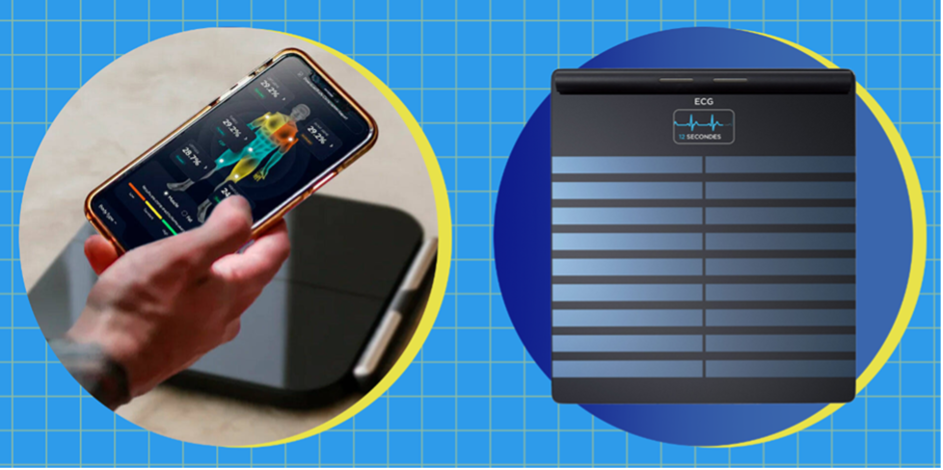
Weight
This is the simplest measurement, and naturally, it’s the primary function of the device. The difference between various models lies in the accuracy of the data obtained.
Body Fat Percentage
This isn’t to body shame you at home. In fact, this metric is important to understand the progress you’re making during workouts — whether fat tissue is converting into muscle, whether your workouts, diet, and lifestyle changes are effective, etc.
Muscle Mass Percentage
Another important metric to track, helping you see progress from your fitness routine, even if your overall weight remains stable. There’s a myth that exercise is just for losing weight. While it does improve physical form, people don’t burn as many calories during a workout as they might hope. However, what happens during a good workout is that your body starts using fat reserves and converting them into muscle. So, even if there’s no visible weight change, you can be sure there’s progress if you’re tracking it accurately. This helps maintain self-discipline and motivation.
Bone Density
This metric is important to monitor for people over the age of 40. Decreasing bone density is a concerning symptom that should prompt a visit to a therapist. While a single measurement may not provide much insight, monitoring this over time, say over a year or two, can help you see whether everything is normal or if special attention is needed.
Water Percentage
Insufficient hydration is a common issue. People often forget to drink enough water, which can lead to problems affecting the skin, hair, and nails. By measuring your body’s water content, you can ensure you’re properly hydrated and getting the necessary amount of fluids daily.
Basal Metabolic Rate (BMR)
This is another useful feature of smart scales. It shows how many calories your body burns on average at rest. When you’re actively working out or following a diet, it’s helpful to understand the effort needed to achieve noticeable results more quickly.
The Body Mass Index (BMI), which isn’t displayed directly on the scales but can be calculated via the app, is another metric. You need to enter your height for this calculation, and the data will be more accurate.
Smart scales allow you to understand and assess the current state of your body, not just your weight. You’ll also be able to track these metrics over time, recording daily readings and evaluating how they change. This is a highly useful tool for daily motivation and continuous efforts to improve your health.
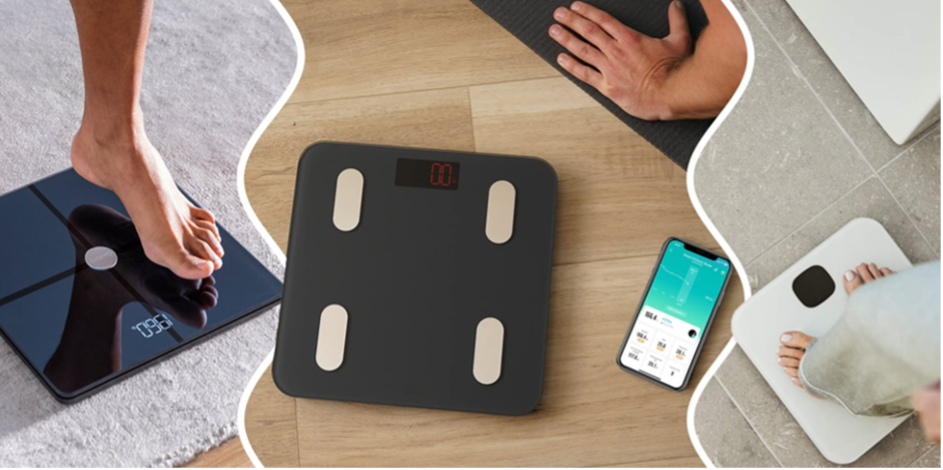
Do Smart Scales Work as Promised by Manufacturers?
The features offered are indeed useful, and even if someone doesn’t engage in sports or follow a special diet, it’s still interesting information to know. The question is, can the scales really provide the data as promised by the manufacturer?
If you choose a model with good reviews and one that uses clear technology (determining body metrics using a weak electrical current), then yes, in general, smart scales do work. However, there are a few important caveats.
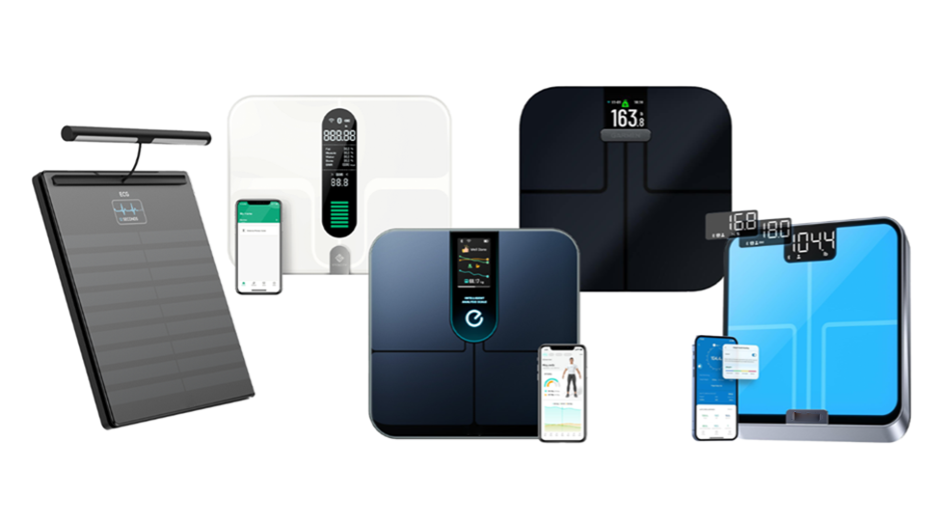
Accuracy Concerns
When asking, “Do smart scales really work,” you must consider the potential margin of error. These are not medical devices, and the data provided may have certain inaccuracies due to the nature of the measurements. The body weight data will be the same for all devices. However, when it comes to algorithms for determining additional body metrics, different models can provide varying information, which may differ significantly or only slightly. In addition to algorithms, factors like hydration level, time since the last meal, and even body temperature can affect the accuracy of these measurements. So, when measuring parameters like body fat percentage, bone mass, etc. and trying to verify them with another device, slight differences in the data are normal.
Experts (trainers, nutritionists, therapists) unanimously advise not to focus entirely on the current and exact figures shown by smart scales but to analyze changes over time, that is, to track trends.
Do Smart Scales Measure Height?
The truth is, they cannot. You can input your height into the app by measuring it using traditional methods. Scales do not come equipped with height sensors or smart measuring tapes, so the device can’t assess all your physical parameters at once.
Advantages of Using Smart Scales
There are two categories of people for whom such a device will become a helpful assistant, friend, and support:
- People who actively engage in sports to prepare for competitions, lose weight, or improve their health.
- People who monitor their diet and aim to comprehensively track metrics to see how their diet contributes to maintaining good shape and well-being.
Based on this, the main advantages of smart scales for measuring weight and other parameters are:
- A comprehensive understanding of the current state of the body;
- Gaining a holistic picture of important details (fat-to-muscle ratio, bone density, etc.);
- Convenient data synchronization with a fitness app on your smartphone;
- Receiving important reminders, notifications, and detailed analytics;
- Assisting in achieving a specific fitness goal;
- Motivation, self-discipline, and responsibility, with insights into your health over time;
- The ability to set up the device for multiple users.
Moreover, these devices are durable and reliable. They flawlessly handle both their primary function and many additional options.

Limitations, Drawbacks, and Other Considerations
Smart scales offer so many benefits that they could be considered every athlete’s best friend or for anyone closely monitoring their health. However, there are certain pitfalls and limitations in their functionality that you should be aware of before making a purchase decision.
Issues with Accuracy in Measuring Body Fat, Muscle Mass, Bone Density
These measurements may vary across different models, and not all smart scales can guarantee accurate results for these parameters.
Some Groups of People Cannot Use These Devices
Due to the specifics of their operation, BIA (Bioelectrical Impedance Analysis) technology is not recommended for pregnant women, patients with pacemakers, etc. If you have concerns about the safety of using low electrical current, consult your doctor beforehand to ensure that using a smart scale is safe for you and will not negatively affect your health.
Different Brands May Provide Different Data
Brands use various algorithms and offer different current strengths. Therefore, if you want to track progress, stick to the same scale throughout your entire study.
Height Measurement is Absent
You need to measure this separately and manually enter the data into the app.
How to Use Smart Scales for Maximum Benefit and Efficiency?
To get the best measurement results and make the most of it, here are a few tips that will help you. These recommendations apply regardless of the smart scale model or its features. So, how should you use this device, and what rules should you follow?
- Weigh yourself daily at the same time and under the same conditions. For example, weigh yourself every morning on an empty stomach or every day after a workout. The circumstances and time of the measurement should be consistent. This way, the progress you observe over time will be noticeable, and the results can be interpreted accurately.
- Try to weigh yourself before eating or drinking, as food and water intake can alter the results.
- Drink enough water throughout the day that is suitable for your body’s needs. This should be approximately the same amount daily for more accurate measurements.
- Don’t focus solely on the results of the measurements; pay attention to the truly important aspects: your diet, hydration, and exercise regimen. Let the measurements be just an additional motivation for you to maintain a healthy lifestyle and well-being.
- Don’t worry about daily fluctuations, as these can vary depending on different factors. Evaluate how well you’re sticking to your diet or exercise regime by observing long-term trends.
- If you use multiple scales, try to stick with one brand to make your results more consistent.
Conclusion
The offered functionality goes beyond what regular scales can provide. These measurements are more accurate, and the additional features can motivate you to follow a workout routine, maintain a healthy diet, and continue working on yourself. However, don’t be discouraged if you don’t immediately or quickly see the results you expect in terms of body composition, bone, or muscle mass. Give your body time to adjust, and take it slow. Smart scales will become your tool, assistant, and motivator with this approach.
Want to BUY this product?
Check out retailer list for your country.
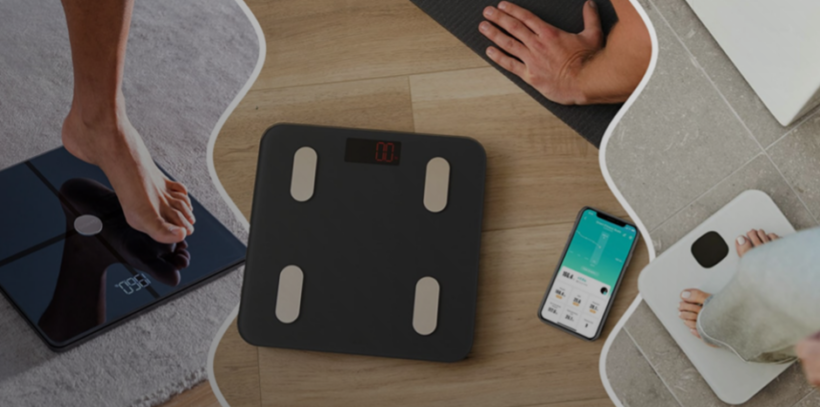


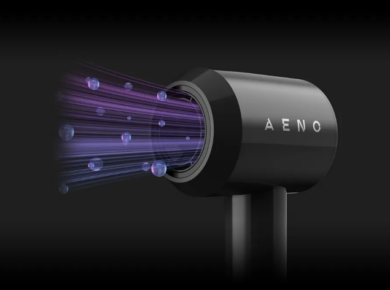





1 comment
This article did not mention that these smart scales may not be accurate if you have joint replacements. The metal in your body will distort electrical current designed to measure various aspects of your bone and body composition.